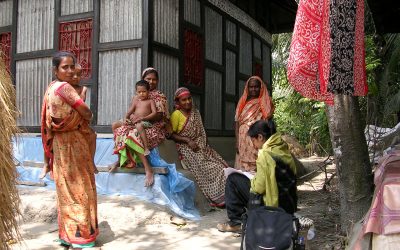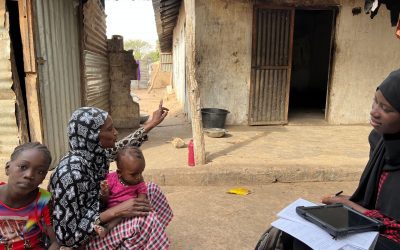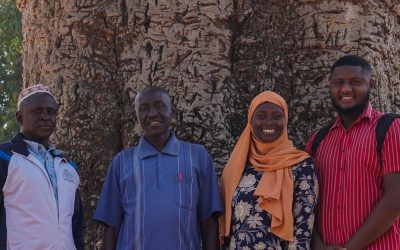My Neighbors are Nicer Than I Am
By Richard Sosis
Rivka opened our front door, walked up the stairs into our living room and announced “My mother said I had to come over for a timeout.”
We knew this routine well. Rivka, our seven-year-old neighbor, is the oldest of four. When she and her siblings fight they need to be separated, but since the four siblings share two bedrooms Rivka’s mother cannot send everyone to their room. Our house serves as a refuge or place of punishment, depending on your perspective. We have better candy than they have at Rivka’s house, so we suspect Rivka sees our house as the former. Regrettably, chocolate bars might be incentivizing Rivka’s troubling-making.
I live in a small town with an unusually large Jewish population; indeed, the overwhelming majority of my neighbors are Jewish. Like neighbors everywhere, we exchange favors, such as taking in mail and caring for house cats while away. However, after a few years in the neighborhood I realized that the type of help my neighbors offered each other extended well beyond mail and house cats. For instance, when an older woman in the neighborhood needed a kidney, a middle-aged man in the community generously served as a donor. When I learned of this I asked others whether they were related or if there was some special connection between their families. The responses were all the same: no. Both families had simply lived in the area and known each other for a long time.
Sacrifice at this level is of course rare, but on a more regular basis what is striking in the community is how much my neighbors help each other raise their children. This happens everywhere of course; it is not unusual for children throughout the world to roam freely between their friends’ homes, ever in search of more milk and cookies. But in my neighborhood I suspect the level of help that families offer each other is beyond what most Westerners expect; it is certainly more than I’ve experienced in other places I’ve lived in the U.S. Nearly every week, for example, we receive a call from a neighbor asking for someone to come to the house for 20 minutes or so to watch a child who is napping, so mom can pick up another child from her flute, swimming, or karate lesson. These are not babysitting jobs for the neighborhood teens; watching sleeping children is simply an expected part of living in this community.
It is not just adults who are offering care to the neighbors’ children. My kids have helped younger children in the neighborhood with math homework, art projects, Hebrew translations, and even bar mitzvah training. And again, these are not tutoring jobs; my kids are never paid for their help, nor do they expect payment. Helping is just the norm of the neighborhood.
I often joke that I study people for a living because I don’t understand them, and I have indeed been equally baffled, impressed, and humbled by the generosity in my extended neighborhood. I’ll be the first to admit that my neighbors are nicer than I am; yet, in small ways I’ve played my part in the community as well. As a hopeless insomniac, everyone in the neighborhood knows that if there is a late-night emergency, I’m the one to call. My most useful contribution occurred late one evening when one of our neighbors went into labor with her third child. I was still awake. As she and her husband rushed to the hospital I walked across the street and fell asleep (eventually) on their living room couch. In the morning I prepared breakfast for their two children and sent them off to school.
Evolutionary researchers classify the type of care observed in my neighborhood as alloparental care, which specifically refers to childcare provided by people other than parents. Alloparental care can be direct, such as holding or cleaning an infant. Alternatively, alloparental care can be indirect by helping the parents, thus freeing up time and energy so they can directly care for their child. For example, when a mother in our Jewish community returns from the hospital with a newborn, someone from the community—typically a close friend—will organize meals for a month, sometimes longer. Every night a different community member will drop off a full dinner for the entire family so the parents of the newborn do not have to worry about cooking while they adjust to another life in their home. Of course, a family who receives such goodwill will have ample opportunity to return the favor, and they do.
Alloparental care extends beyond our neighborhood to the larger Jewish community in other ways as well. For example, my wife is on a Jewish community listserve and it is not unusual for people to post messages asking if anyone is heading to the grocery store, and if so, to please pick up an item or two. And community members regularly ask on the listserve if anyone is available to pick up children from their various extracurricular activities. Children’s clothes that no longer fit, as well as extra food items that are not needed or wanted, are frequently offered on the listserve. Recently, someone posted a message about sharing fresh duck schmaltz (fat), which only reinforced my belief that humans are a most curious species.
In our town, alloparental care also extends beyond the close-knit Jewish community. My wife, for instance, cooks meals for our non-Jewish neighbors when they have a newborn, just as she would for those in the Jewish community. What is different about helping our non-Jewish neighbors, however, is that she is cooking for friends. In other words, she is offering help to people with whom she has a personal relationship. When meal-lists for a newborn are organized in the Jewish community, friendship is often irrelevant; it is not uncommon to barely know the people you are cooking for. Seemingly, people are investing in the community and the meal-list institution, rather than specific individuals. Indeed, the exchange of favors between my Jewish neighbors, and the Jewish community at large, appear to lack any formal accounting or deliberate calculation. Anthropologists refer to such exchanges, especially in the context of hunter-gatherer food sharing, as generalized reciprocity; that is, behaving altruistically without the expectation of an immediate return benefit.
But how do such systems work? To endure, cooperative exchange systems require mechanisms that motivate generosity and limit abuses or overexploitation. Our project aims – among other goals – to uncover these mechanisms, figure out how alloparental care systems function, and explain how they vary across cultures. These systems exist in many cultural and religious communities throughout the world and we will explore such systems in the Gambia, Malawi, India, Bangladesh, and United States. There has been considerable debate among anthropologists concerning the role that alloparental care has played in human evolution, so hopefully our findings can also contribute to this scholarly discussion. More modestly, I’m hopeful that studying these systems will help me understand the thoughtfulness I’ve observed in my own neighborhood.


